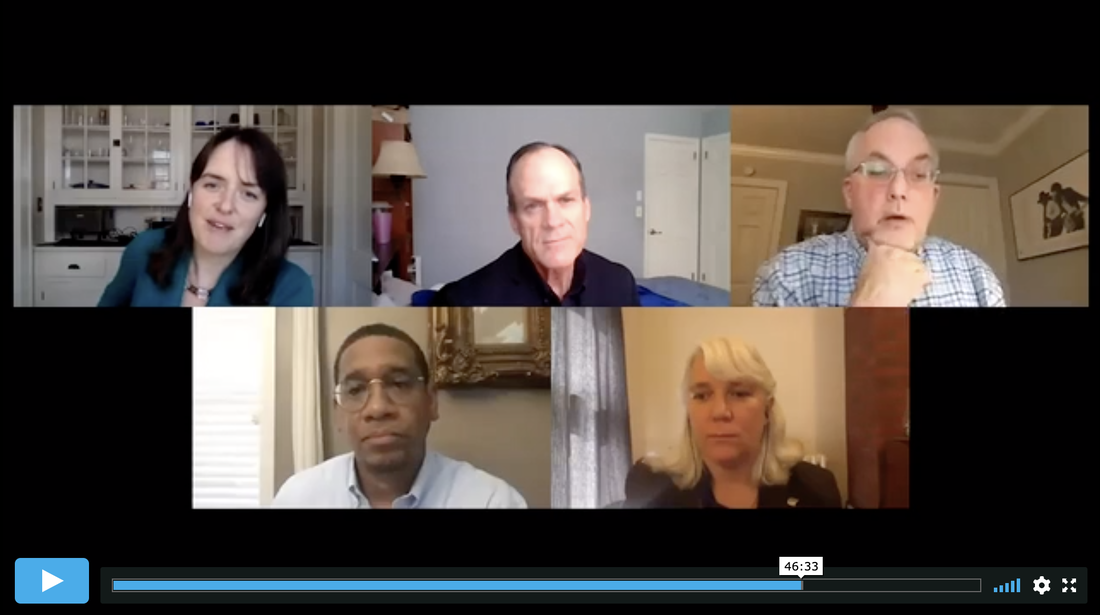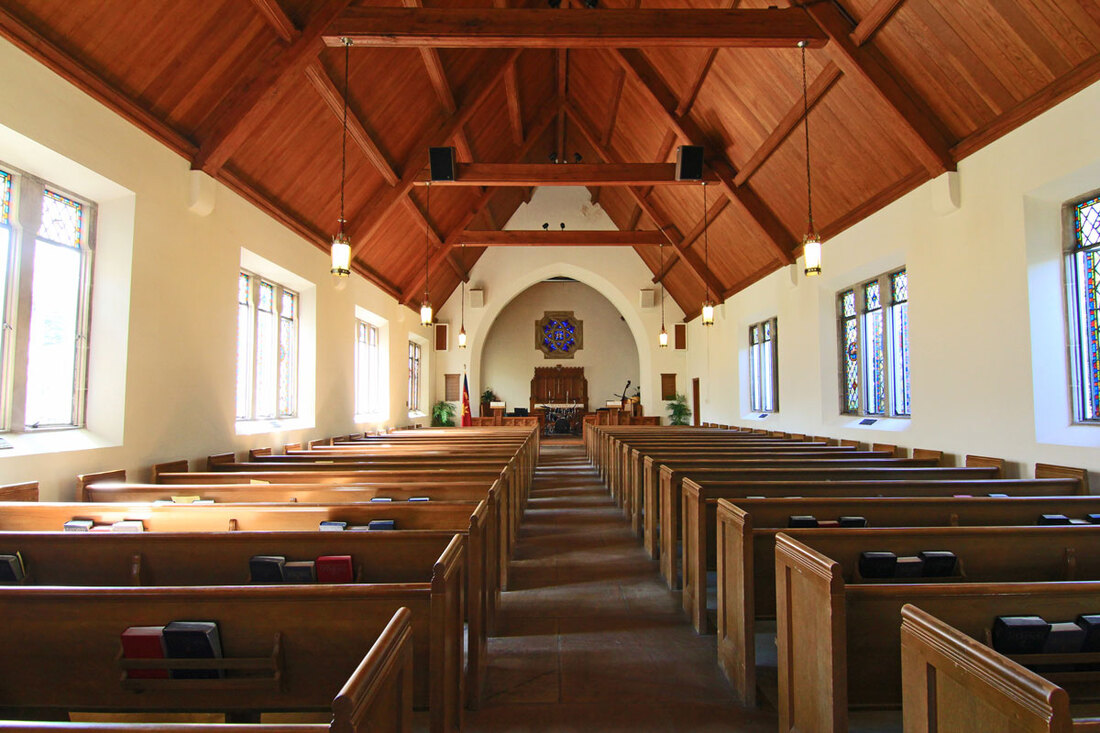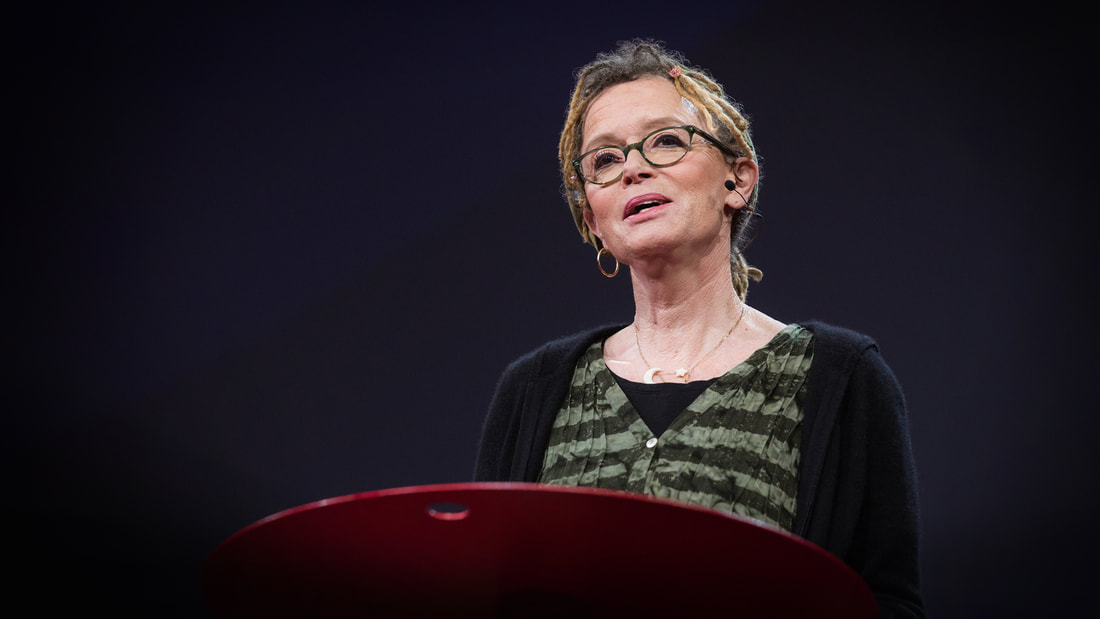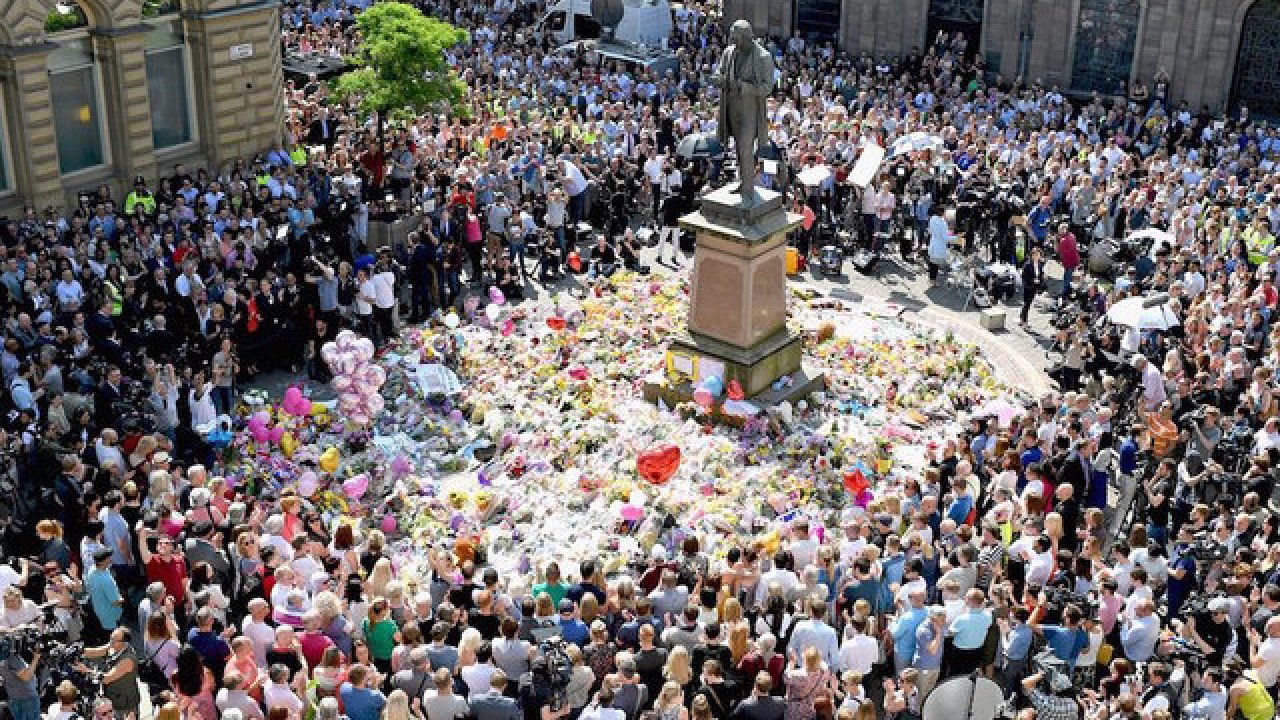|
The experience of joy can be especially challenging in times of adversity. As we experience loss and grief, we may struggle to see or even be willing to accept moments of joy as they appear. For example, how often have you felt a twinge of guilt after finding yourself spontaneously laughing when recalling a happier time with a loved one who has died? And yet, you may have also found that laughter, too, reminded you of what meant the most to you. These glimpses of joy – and, of course, joy does not only involve laughter – invite us into the complexities of life. How even in our most tragic moments, we can experience goodness and warmth, too. In recalling multiple disaster events, the Revs. Kime, Crebbin, Swain, and Gardner speak of these complexities and nuanced interfaces here at the 46:33 mark. You may also find this book on Joy, edited by Christian Wiman, meaningful in this season of conducting “safer at home” practices. In the introduction, Wiman speaks eloquently to how experiences of loss and elusiveness interplay with perceptions of joy. As much as we might prefer them to be distinct from one another, nevertheless, they often call one another to mind and heart. How are you finding yourself surprised by joy, or missing joy, in these days? Are you finding joy appearing throughout your experiences of the phases of disaster, or are you finding its absence complicating your experience? What is sustaining you as you move through these days? As a leader of your organization, your ability to find moments of refreshment along the way will help you manage the multiple ups and downs and lead your community well. Share below what you are doing to maintain your health and encourage those around you. Rev. Dr. Kate Wiebe serves as the Executive Director of ICTG. She is an organizational health consultant and pastoral psychotherapist. She lives with her family in Santa Barbara, CA.
1 Comment
In the coming weeks, pastoral care needs will escalate exponentially as COVID-19 impacts continue to increase. Here are some ways your ministry team can prepare:
Creating a Trajectory Map
Use the Phases of Disaster as a starting place, and begin to draft a trajectory map for your organization or community. You can share your maps on twitter, facebook, instagram, or linked in, using hashtag #carerestores. As you're creating your map, consider the differences your organization or community are experiencing compared with traditional understandings of episodic or singular incident disasters. For example, many groups are finding their sense of the initial "hero" stage has been a far sharper incline or spike, as leaders and volunteers have rushed in this last week to solve as much as they can and now, even within just a week or two, are experiencing significant senses of fatigue. The fatigue appears to be related to a combination of the strong push to help along with the remarkable speed at which new information is released, often changing and becoming out-dated even hour by hour. Continue to use your map as a draft or living document with your team, a template that you can update over the coming weeks and months. Recognize the Range of Impact Over the next several weeks and months, your congregants, ministry recipients, or community members, will experience a range of impacts. Some of these will be directly COVID-19 related. For example:
Some of the impacts will be indirectly related to COVID-19. For example:
Pacing Care for Sustainability As you consider what needs already are present and what may be coming, in what ways can you and your staff pace and nourish yourselves now so that you can avoid burnout and provide sustainable care through the long-term?
Here are some helpful resources for understanding trauma, pacing, and sustaining long-term care:
In-depth Training Manuals: General Ministry Training Manual Youth Ministry Training Manual Spiritual Direction Training Manual Download Free Network Inventories: Spiritual Care Network Inventory - Congregational Spiritual Care Network Inventory - Personal Youth Leaders' Care Network Inventory - Congregational Youth Leaders' Spiritual Care Network Inventory - Personal Further Reading: Congregational Care During COVID-19 Ministry in the Time of Public Health Crisis COVID19 Becoming a Companion along the Valley of the Shadow of Death How Long Term Response to Pandemic Differs from Other Types of Disaster Response Metabolizing Adversity
At the Institute, we have a phrase we use in times of collective trauma response: disaster is your business now. It's a mantra that helps us and our service recipients bring to mind the new reality that now is not business as usual.
Even so, all of that is easier said that done. It's difficult to fully take in all that any disaster means, let alone what the ramifications will be of a global pandemic.
In terms of congregational care, here are some important things to consider is you focus on the primary business of response to COVID-19. Mental, Emotional, and Spiritual Health The longer quarantines last, the less people are infected or die, but the more behavioral health challenges may arise related to people being cooped up in their homes, having limited touch, and having lost significant income or jobs. The shorter quarantines last, the more people are infected or die. This presents additional behavioral health challenges related to grief and bereavement, especially if people are unable to visit their loved ones in times of distress or death, as well as challenges related to conducting memorial services under these circumstances. What you can do to prepare: Continue to keep your staff and self informed about the trajectory of the virus in your community. Maintain an up-to-date referral list of behavioral health providers in your community to refer your congregants to as needed.
Worship and Care
Depending on the trajectory of the virus in your community, your congregation may need to provide worship and pastoral and peer care services remotely for many weeks or months. Your staff and volunteers also may need to provide ongoing volunteer services to assist more persons in your congregation or community who are unable to access basic necessities, including groceries, assistance with utilities maintained online, banking, and so forth. What you can do to prepare: Continue to keep your staff and self informed about the trajectory of the virus in your community. Also stay informed about what services your greater community is providing that your congregants can access as needed, or how your congregation can assist your greater community in meeting needs. Consider ways you can help your healthy volunteer base pace themselves for the long term. Encourage volunteers and staff to take regular breaks and not over-function, in order to be available for the duration and avoid inadvertent burnout. If you are part of a smaller congregation, consider partnering with a larger congregation in your area that can assist with remote worship and care services. Financial Support Your congregants, your community, and your congregation likely will experience financial challenges in the weeks and months ahead. These may include loss of jobs, loss of businesses, significantly reduced investments, reduced donations, and so forth. What you can do to prepare: Continue to keep your staff and self informed about the trajectory of the virus in your community. Consider whether there are important, and frank, conversations that may need to be had with your governing body about the reality of your congregation's financial state before the virus and what it may experience with loss of income. Recognize the fact that you may have to pace not only yourselves but what you focus on in the weeks ahead to ensure stability, if you are able. If your congregation is not facing significant financial risk, consider the ways you may prepare to assist or even lead your community in providing financial assistance for persons in the community that may endure great financial challenges in the weeks ahead. Remember that you may not have the size organization to address all types of needs, and that you personally cannot be all things to all people. Anticipate now the kind of person you want to be, and the kind of people you want to encourage your congregants to be, in light of long term challenges and what is feasible. Take time now to prepare for how best to practice those traits amid remarkable adversity. Additionally, you may find these posts helpful as well:
Rev. Dr. Kate Wiebe serves as the Executive Director of ICTG. She is an organizational health consultant and pastoral psychotherapist. She lives with her family in Santa Barbara, CA.
On March 13, 2020, Desta Goehner, Director of Congregational Relations at California Lutheran University convened an online forum for over 200 clergy, pastors, and faith-based leaders to consider together what ministry may look like in the days, weeks and months to come around the public health crisis related to the coronavirus COVID-19.
The conversation included the stories, wisdom and experiences of these four: 1. Mike Anderson, a pastor in the epicenter of Kirkland, WA who shifted ministry, worship and pastoral care due to COVID-19. 2. Priscilla Austin, a Seattle area pastor, who describes how ministry is changing and also how she is caring for herself in the midst of it all. 3. Kate Wiebe, MDiv, PhD, trauma expert and Executive Director of the Institute for Collective Trauma and Growth, who shares about what ministry looks like in times of crisis and trauma. 4. Rozella White, coach and disaster chaplain, who talks about spiritual care and emotional support for leaders in times of crisis. Together, along with a vibrant chat room conversation with many participants, Desta and the speakers fostered a powerful time. Below you can find the resources related to the talk: 1. Recorded web gathering: http://bit.ly/MITCCLU 2. Open Google Drive: http://bit.ly/MinistryintimesofCrisis In this folder you'll find the chat box notes with resources and questions, the recorded web gathering and the slides with the guest speaker information. 3. Webpage with all the details: http://bit.ly/CLUcongregationalrelations This gathering also developed into a weekly series, which you can find more details about on the CLU Congregational Relations webpage listed above.
Help sustain online education by making a financial contribution today or becoming a monthly donor. Thank you for your generosity!
This post, written by Kate Wiebe, originally was published on June 19, 2017, on the ICTG blog. Anne Lamott spoke at my church, in Santa Barbara, a couple years ago. She was the keynote speaker at a fundraiser for a church collaborative effort my husband helps to coordinate, offering shelter for neighbors without homes. Among various topics that evening, she described some of what she experienced in the aftermath of the mass shooting in Newtown, CT. As a volunteer Sunday School teacher, she recalled instinctively wanting to be with her kids and to provide them with more opportunities to create, to feel safe, and to grow. At ICTG, we often refer to that leadership activity as "adding good into the world." Over the years, we've noticed how easy it is to talk A LOT about the trouble in the world. But changing that trouble happens when we offer more goodness in response. Listening to Anne speak, I wondered, what helps a person lean in with goodness – like that – immediately in response to heartache? What makes a person think, I should go be a caring presence with kids, help them feel safe, and, possibly, find a glimpse of pleasure again, after great loss? It can seem too simple. Not nearly enough in the face of horrendous heartache. Like how, recently, at a training I was leading for youth leaders, a participant whose youth predominantly have experienced traumatic experiences balked at this sentiment. "Sorry, but, calming myself down and building relationships hardly seems like it will make enough of a difference in the face of so much overwhelming tragedy." It's certainly not a quick fix. In fact, many times, people who call us are hoping we might have a silver bullet or a magic pill – a miracle – that will instantly change the circumstances and forever relieve the pain and suffering. They would much rather not have to trod the Valley of the Shadow of Death. As one minister put it, "Can't I just scale up the rocky ledge, and skip this whole depressive Valley?"
Trauma, severe loss, moral injury, or ambiguous losses (like the loss of childhood, of innocence, of playfulness) can seem a lot like a hot potato. Most often we don't want to hold it, and we instinctively toss it away from us as soon as we can. Like when a group rashly removes a person who is making efforts to resolve what happened. Or when people refuse to talk about or acknowledge what happened in any way and instead encourage others to pretend like it didn't happen. Or when it seems like people are not responding at all, and rather just moving on and expecting "time" will heal the hurt. These efforts have all been tried and failed. Instead, they result in the exact opposite of what was intended. They prolong and even increase symptoms, as survivors bodies continue to insist on accounting for what's happened. As we become more conscious of the far-reaching effects of trauma on persons, families, organizations, and communities, leaders can be more effective in response by recognizing how attending to the effects of trauma permeating our congregations and communities today takes patience, being present, having courage to be honest about what has happened, and being compassionately curious in listening to the surviving individual or collective body express what it needs next for care and restoration. In his book, The Body Keeps the Score, traumatologist Bessel van der Kolk says he believes we are on the verge of becoming a "trauma conscious" country. In terms of the character and components of congregational care today, I believe we're on the verge of becoming a trauma conscious Church. As a Christian, I understand the Church to be the Body of Christ at work in the world today. We are becoming conscious of how wounded the Body is, has been, and also the ways the Body can become restored and respond more fully to wounds in the world – adding more good in response to profound sorrow.
That night, in Santa Barbara, Anne suggested, we allow our tears to wash us, cleanse us, and water the ground at our feet. Though a much slower act of response, nevertheless in my experience survivors find it miraculous when, in the presence of caring companions, they find their tears of lament leading everyone toward relief and refreshment. Through intentionally caring companionship, we witness over and over again how the path of the Valley of the Shadow of Death leads from a sense of feeling forsaken by God toward a sense of being led beside still waters. To learn more and gain restorative strategies for responding to collective trauma among congregations and communities, visit the ICTG congregational resources page. Recommended Reading: The Body Keeps the Score, by Bessel van der Kolk
This post, written by Kate Wiebe, originally was published on May 23, 2017, on the ICTG Blog. At 2:30pm, beginning descent into Los Angeles International Airport, my fellow passengers from London, England, and I were gathering our personal items and ensuring our tray tables were up and our seats were in full upright positions. Of course, none of us imagined the terror occurring in Manchester at that same time. The first news I received, about 45min later, was when a colleagues simply posted "Manchester" on her Facebook feed. An ordinarily thoughtful and articulate woman, this one word signaled the truth: What words suffice in the aftermath of horror and devastation? The fact that this latest terror attack targeting children and teenagers at the height of leisure and celebration only proves all the more gut-wrenching for people near and far. Some of my own experience of disorientation came as I took in the fact this occurred as I was returning from a trip to England where fellow seminary professors and I studied and prepared to teach ordinands trauma-informed ministry in response to collective traumas. How painful to have to put into action so immediately some of the practices we diligently prepared only hours before. Here you will find guides for pastoral response to local collective trauma, particularly involving children and teenagers, including basic principle and tips that have proved helpful in other communities stricken by terror. In the coming weeks, local clergy and ministers may also find the Phases of Collective Trauma Response a helpful conversation piece as they discern next steps together. You can also share best practices with one another in the comments below. Prayers continue for everyone impacted and responding to the bombing in Manchester, England. And much gratitude for all the family, friends, colleagues, and first responders offering much needed help and support in yet another time of great need. |
�
CONGREGATIONAL BLOG
From 2012-2020, this blog space explored expanding understanding and best practices for leadership and congregational care.
This website serves as a historical mark of work the Institute conducted prior to 2022. This website is no longer updated. Archives
July 2020
Categories
All
|









 RSS Feed
RSS Feed
